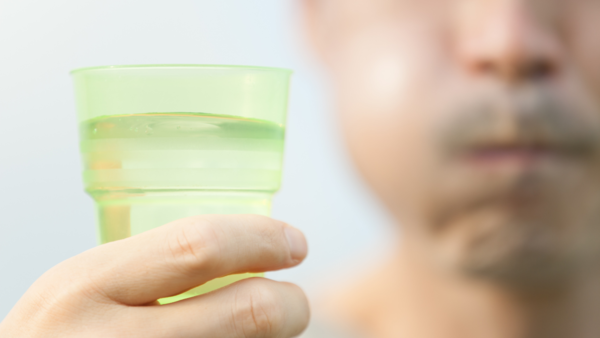Oil pulling, an ancient practice from India’s Ayurvedic medicine system, involves swishing oil in the mouth to remove bacteria and promote oral hygiene. Recently, this practice has gained popularity when many influencers got on this trend. Many viral videos around oil pulling claimed that this technique can effectively kill bacteria, improve dental health, and potentially treat various oral conditions by moisturizing gums and increasing saliva production, which naturally reduces bacteria levels in the mouth. Here are simple reasons to follow oil pulling in your daily routine for teeth whitening and good oral health:
Oral bacteria
The human mouth can harbor up to 700 different types of bacteria, with approximately 350 present at any given time. Some of these bacteria contribute to dental problems like tooth decay, bad breath, and gum disease. Research by Springer has demonstrated oil pulling’s effectiveness in reducing harmful oral bacteria. A study of 75 adolescents compared daily oil pulling using sesame oil with antibacterial mouthwash use, finding that both methods significantly decreased harmful bacteria in saliva and plaque after 15 days.
Removes bad breath
Bad breath, or halitosis, affects approximately 50% of the population. Common causes include infection, gum disease, poor oral hygiene, and bacterial buildup on the tongue. Another study by MDPI involving 60 participants compared the effects of mouthwash, water, and coconut oil rinses over two weeks. The results showed that both mouthwash and coconut oil were effective in reducing bacterial counts in saliva.
A 2011 PubMed study found oil pulling to be as effective as chlorhexidine mouthwash in treating bad breath. The study examined 20 children who used either chlorhexidine or sesame oil, with both methods showing significant reductions in microorganisms associated with bad breath.
Heals cavities
Cavities, resulting from tooth decay, develop due to poor oral hygiene, excessive sugar consumption, and bacterial buildup. These factors contribute to plaque formation, which contains bacteria that produce acid that destroys tooth enamel. Multiple studies have shown that oil pulling can reduce oral bacteria as effectively as traditional mouthwash, potentially helping prevent tooth decay and cavity formation.

Improves gum health
Gingivitis, characterized by red, swollen gums that bleed easily, is primarily caused by plaque-related bacteria. Oil pulling has shown promise in improving gum health and reducing inflammation by decreasing harmful bacteria like Streptococcus mutans. Another study by the The International Journal of Health Sciences comparing sesame oil pulling to standard mouthwash in 20 boys with gingivitis, found that both methods reduced plaque, improved gingivitis symptoms, and decreased harmful oral bacteria.
Teeth Whitening
While some proponents suggest additional benefits beyond oral health, scientific research remains limited. There are also unverified claims about oil pulling’s potential teeth-whitening effects. This may happen due to removal of buildup and plaque removal. Compared to distilled water, oil pulling results in a statistically significant increase in plaque removal.
How to do oil pulling?
The process involves four simple steps: measuring one tablespoon of oil, swishing it in the mouth for 15-20 minutes without swallowing, spitting into a trash can to avoid plumbing issues, and rinsing with water before eating or drinking.
For optimal results, perform oil pulling first thing in the morning on an empty stomach, though this can be adjusted to personal preferences. Traditional practitioners recommend sesame oil, though coconut oil and olive oil are popular alternatives due to their anti-inflammatory and antibacterial properties.
While research shows promising results for oral health benefits, oil pulling should complement rather than replace traditional oral hygiene practices like brushing, flossing, and regular dental check-ups.


